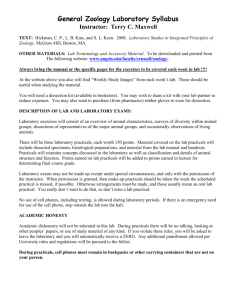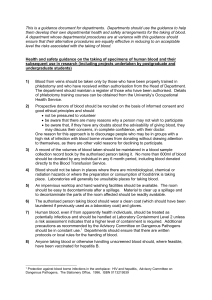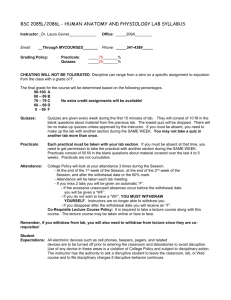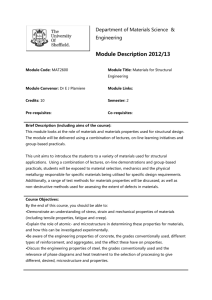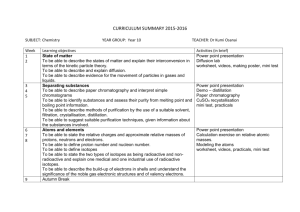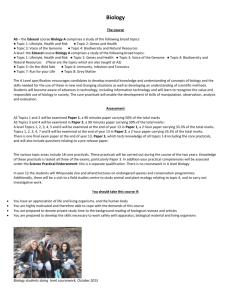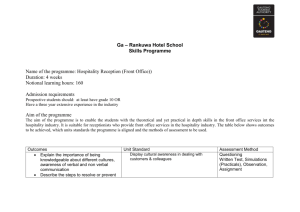BIOL 224 1001
advertisement
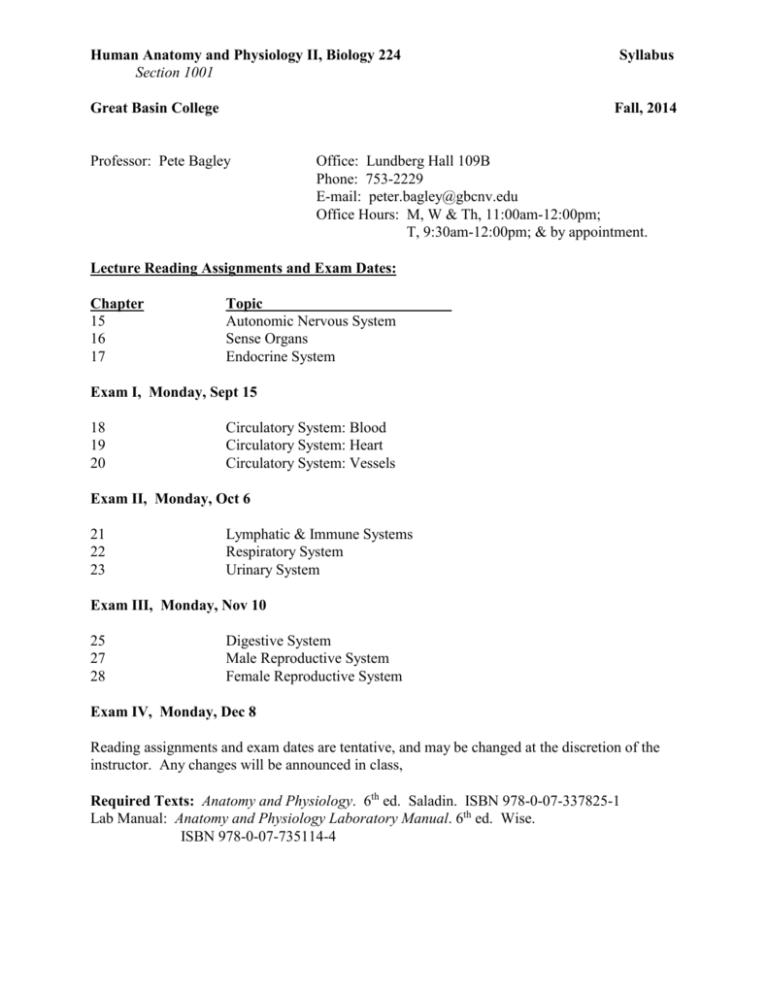
Human Anatomy and Physiology II, Biology 224 Section 1001 Great Basin College Syllabus Fall, 2014 Professor: Pete Bagley Office: Lundberg Hall 109B Phone: 753-2229 E-mail: peter.bagley@gbcnv.edu Office Hours: M, W & Th, 11:00am-12:00pm; T, 9:30am-12:00pm; & by appointment. Lecture Reading Assignments and Exam Dates: Chapter 15 16 17 Topic Autonomic Nervous System Sense Organs Endocrine System Exam I, Monday, Sept 15 18 19 20 Circulatory System: Blood Circulatory System: Heart Circulatory System: Vessels Exam II, Monday, Oct 6 21 22 23 Lymphatic & Immune Systems Respiratory System Urinary System Exam III, Monday, Nov 10 25 27 28 Digestive System Male Reproductive System Female Reproductive System Exam IV, Monday, Dec 8 Reading assignments and exam dates are tentative, and may be changed at the discretion of the instructor. Any changes will be announced in class, Required Texts: Anatomy and Physiology. 6th ed. Saladin. ISBN 978-0-07-337825-1 Lab Manual: Anatomy and Physiology Laboratory Manual. 6th ed. Wise. ISBN 978-0-07-735114-4 Lab Schedule Week Date____ 1 Aug 26 Exercise 24 & 25 Topic Taste/Smell & Somatic Senses 2 Sept 2 26 & 27 Eyes & Ear 3 Sept 9 28 Endocrine System 4 Sept 16 29 & 30 Blood 5 Sept 23 Exam I / 31 Heart 6 Sept 30 32 EKG 7 Oct 7 34 & 35 Arteries 8 Oct 14 36 & 38 Veins & Blood Pressure 9 Oct 21 Exam II 10 Oct 28 39 & 40 Respiratory System 11 Nov 4 42 Digestive System 12 Nov 11 Holiday 13 Nov 18 44 & 45 Urinary System 14 Nov 25 46 & 47 Reproductive Systems 15 Dec 2 Exam III Always read the lab exercise ahead of time. Knowing the procedure allows the excise to go more smoothly and quickly. Catalog Description: BIOL 224 Human Anatomy and Physiology II (4 credits) A continuation of Biology 223 with consideration of the circulatory, respiratory, digestive, excretory, endocrine, and reproductive systems; increased emphasis on body chemistry. Concurrent enrollment in a corresponding lab section is required for this course. Prerequisite: Must have completed BIOL 223. Method of Instruction: Live lecture and laboratory Grading System and Policies: The grade for this course will be based on two components: performance in lecture; and laboratory. They will be weighted 75% for the lecture, and 25% for the lab. The lecture grade will be based on four, one hour exams, worth 100 points each. The lab grade will be based on three practical exams worth 50 points each. The grading scale is as follows: 90 - 100% = A 80 - 89% = B 70 - 79% = C 60 - 69% = D > 60% = F All exams and lab practicals will be held on the dates listed in the syllabus. Any changes to that schedule will be announced in class well in advance. Missing an exam due to personal reasons or illness must be approved in advance if possible, or by contacting me within 24 hours of the exam in the case of emergency. Make up exams will be allowed and scheduled at my discretion. Lab practicals are difficult to set up. As a result, make up lab practicals will only be scheduled in unusual circumstances. In these cases the format of the exam may change. Do not miss lab practicals! The lab quizzes will be scheduled at random throughout the semester. There will be no make ups for lab quizzes. Attendance will not be taken, but be advised: Regular attendance is the single most important thing you can do to get and maintain a good grade. Accommodations for Students with Disabilities: Great Basin College is committed to providing equal educational opportunities to qualified students with disabilities in accordance with state and federal laws and regulations, including the Americans with Disabilities Act of 1990 and Section 504 of the Rehabilitation Act of 1973. A qualified student must furnish current verification of disability. The Director of Services for Students with Disabilities (Julie G. Byrnes) will assist qualified students with disabilities in securing the appropriate and reasonable accommodations, auxiliary aids and services. For more information or further assistance, please call 775-753-2271. Academic Honesty Statement: Great Basin College considers academic honesty one of its highest values. A student who obtains academic credit for work that is not the product of his or her own effort is being dishonest and undermining the academic integrity of the college. Students are expected to be the sole authors of their work. Use of another’s ideas must be accompanied by specific citation and reference. In addition, a learner may not submit the same work for credit in more than one course. The disciplinary consequences of plagiarism and other forms of academic dishonesty include non-acceptance of work submitted, a failing grade in the course, and/or or other disciplinary action as outlined in Great Basin College’s Student Conduct Policy. This syllabus does not in any way represent a contract. It is a reflection of the intent of the instructor, but do recognize that it is an organic construct that may change as the semester progresses. Any changes will be announced in class. Learning Outcomes and Measurements: Learning Outcomes Students will be able to factually recall and conceptually integrate at a level appropriate to a 200 level allied health program, details of the following human organ systems: Autonomic Nervous System Sensory Endocrine Circulatory Lymphatic/Immune Respiratory Urinary Digestive Reproductive Measurement Lecture exam, laboratory practicals Lecture exam, laboratory practicals Lecture exam, laboratory practicals Lecture exam, laboratory practicals Lecture exam, laboratory practicals Lecture exam, laboratory practicals Lecture exam, laboratory practicals Lecture exam, laboratory practicals Lecture exam, laboratory practicals Course Objectives and Outcomes: Comprehension of the processes and structures of the human nervous, endocrine, cardiovascular, digestive, respiratory, urinary, and reproductive systems. Measurement of Objectives: Course learning objectives will be assessed with two distinct tools. Lecture exams will consist of multiple choice questions that will test three types of knowledge: recall of factual information; definitions of terminology; and conceptual integrative and analytic thinking. Laboratory exercises will include obvious aspects of learning details of human anatomy, as well the conceptual and technical skills necessary to understand function. Laboratory practicals will emphasize recall of the various manipulative, study objects, and dissection specimens used in the exercises, as well as testing that the students understand the concepts and principles that were generated with these devices.
